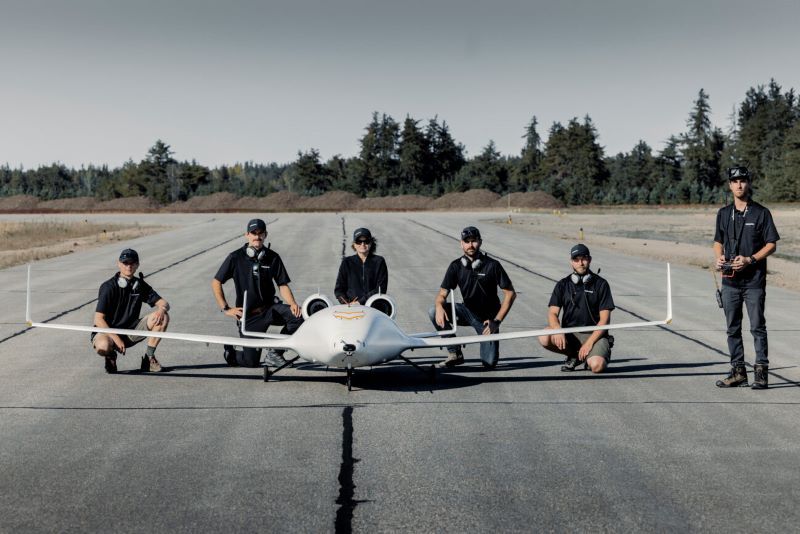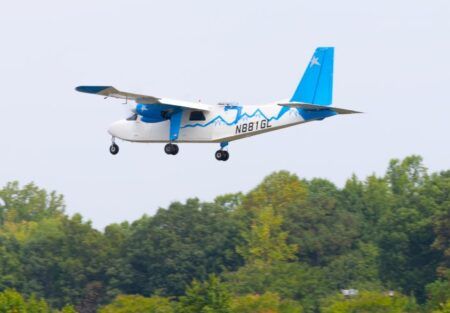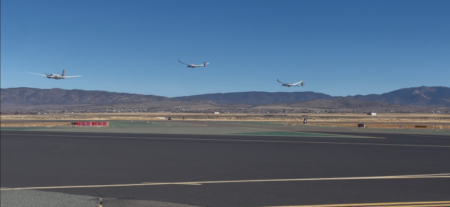Bombardier has been working with the University of Victoria and Canadian consultancy Quaternion on its EcoJet R&D project, which is exploring blended wing body designs to reduce the climate-impact of future business jet aircraft.
The EcoJet program was launched around 15 years ago and aims to halve aircraft emissions through a combination of aerodynamics efficiency improvements, new propulsion systems and other technologies.
Bombardier engineers flew EcoJet’s first prototype in 2017 – an unmanned 7% scaled aircraft with an 8ft (2.5m) wingspan. A second prototype, with an 18ft (5.4m) -span was revealed last year and has been flying since 2022.
The flight test campaigns have been exploring the prototypes’ behavior in free flight and aim to refine the blended wing body design’s radically different flight control laws.
The company said this week it has been working with engineers from the University of Victoria’s Centre for Aerospace Research (CfAR) and British Columbia’s SME Quaternion Aerospace in Canada on the scaled test vehicles it has been using for EcoJet.
The work on the design and fabrication of the EcoJet flight test vehicles has involved multidisciplinary teams of Bombardier engineers and technicians, along with researchers, engineers and students.

Stephen McCullough, senior vice president of engineering and product development, Bombardier said, “We are proud to support forward-looking aerospace research while involving a broad network of academic institutions.
“Now that we have publicly disclosed some aspects of the first phases of the EcoJet flight-testing program, it is important for us to give credit and to share the phenomenal response with our partners who are instrumental to this dimension of the research project.
Afzal Suleman, Canada research chair and director and professor at the CfAR at the University of Victoria said, “Our work with Bombardier represents the most significant research partnership in our history.
“Through this collaboration, our students and researchers are gaining critical real-world skills while helping to push forward the frontiers of sustainability and redefining the boundaries of what is possible for the future of the global aviation industry.”




